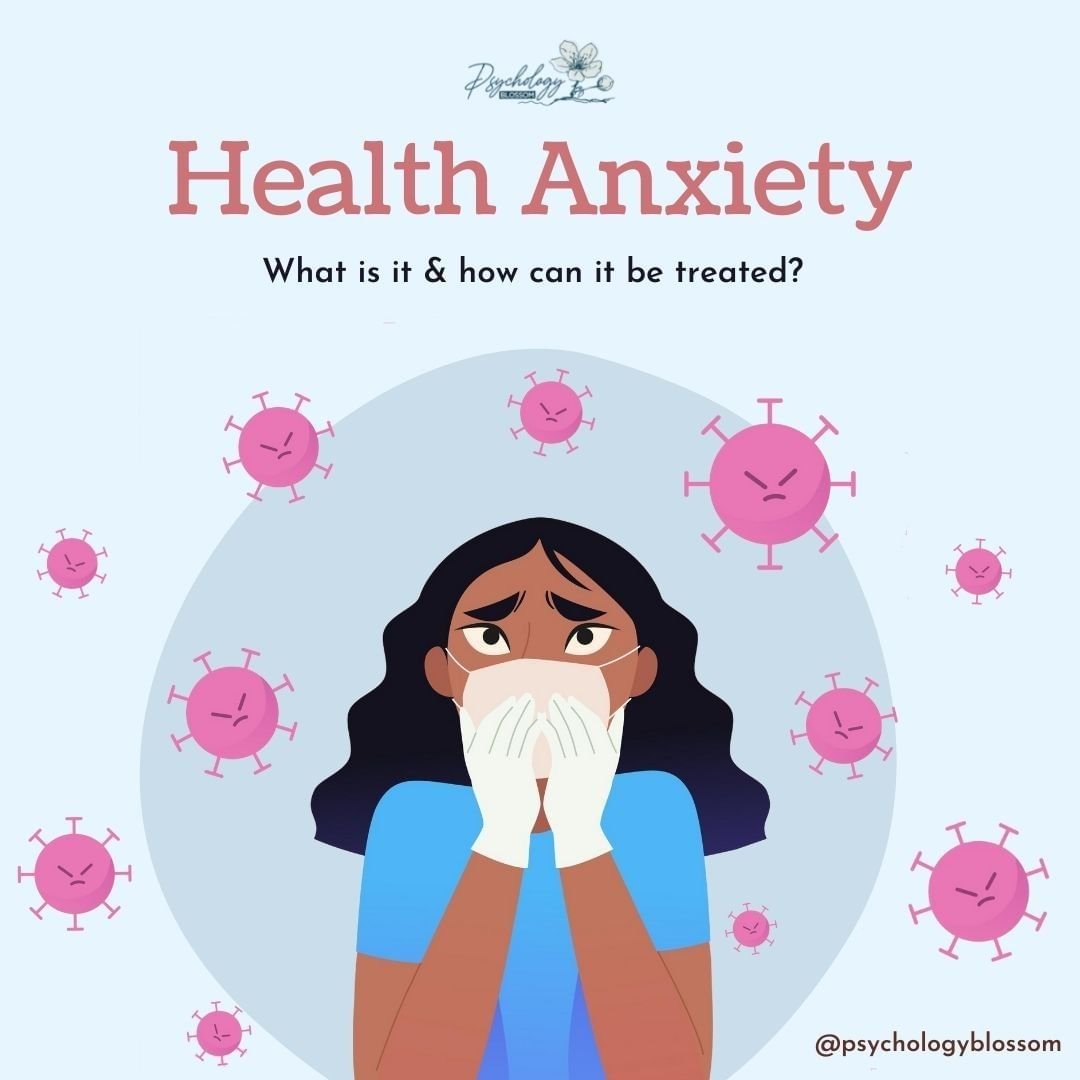Health Anxiety Therapy and How to Manage Health Anxiety
Are you very concerned about your health? Being worried and cautious about your health is normal and even necessary. It ensures that you pay close attention to changes in your body should you actually be ill. However, there are times when worry becomes excessive, and what is protective can start to become harmful.
However, health anxiety occurs when you spend so much time worrying you’re ill, or about getting ill, that it starts to take over your life. Many with health anxiety are unable to function or enjoy life due to their fears and preoccupations. Individuals with health anxiety misinterpret benign bodily sensations (e.g. Breathing, Headaches, Stomach Aches) as dangerous. They might also worry about a specific organ or disease, especially if mentioned in the media or by those around them (e.g. Zika, HIV/AIDS). Over time, this constant vigilance and self-monitoring can create a cycle of anxiety and reassurance-seeking that is difficult to break.
For individuals with health anxiety, testing for these concerns does not ease their worries. In fact, constantly being tested for various illnesses reinforces the anxiety. If their tests produce negative results, instead of dispelling their fears, they might feel that the test is inaccurate and wish to be tested again. On the other hand, some with health anxiety may avoid going to the doctor completely. This is concerning as this may lead to treatable conditions going undiagnosed. This paradox of over-testing and avoidance demonstrates how overwhelming health anxiety can be, and how it impacts decision-making.
Symptoms of Health Anxiety. When to seek for Health Anxiety Therapy
- Constantly worrying one’s health
- Frequently checking one’s body for signs of illness
- Always asking people for reassurance that they’re not ill
- Worry that a doctor or medical tests may have missed something
- Obsessively looking at health information on the internet or in the media
- Avoiding anything to do with serious illness, such as medical television programmes
- Acting as if they were ill
- Anxiety itself can cause symptoms like headaches or a racing heartbeat, and one might mistake these for signs of illness.
- Worries about health interfere with life, family, work, or hobbies and activities
For health anxiety to be diagnosed, physical medical problems must be ruled out through a physical exam. This will then reveal whether these health concerns are present. A full assessment also involves understanding patterns of worry, reassurance-seeking, avoidance, and how much these behaviours affect daily functioning.
Tips to Cope with Health Anxiety
✽ Keep a Diary
Record how often you check in with your body, ask assurance from people, or look at health information. After which, you can gradually reduce how often you engage in these behaviours. Writing it down helps create perspective on how frequent these patterns are, and tracking progress makes change more manageable.
✽ Challenge Your Thoughts
Instead of immediately thinking of worst-case scenarios, consider other situations that are less threatening and more likely. For instance, when you feel anxious about a headache, remind yourself of other common causes of headaches. Headaches are often a sign of stress, dehydration, or lack of sleep, instead of believing that headaches indicate brain tumours which are far more unlikely. Training yourself to evaluate other possibilities breaks the cycle of catastrophic thinking.
✽ Keep Busy
Whenever you get the urge to check on your body, distract yourself by doing something else. This could be engaging in some physical exercise, going for a walk, or calling a friend. Activities that absorb your attention reduce the grip that health anxiety can have over your thoughts. Over time, your brain learns that not checking does not lead to catastrophe.
✽ Do Normal Activities
Engage in activities that you have avoided because of your health worries. For instance, you could do a sport that you like or socialise with people more. Avoidance can reinforce anxiety, while gradual re-engagement teaches the body and mind that it is safe. Each time you face a feared activity without incident, confidence grows.
✽ Try Breathing Exercises
When you suddenly feel intense worries or stress, practicing mindfulness by focusing on the present moment and breathing relaxation techniques can be helpful. Breathing deeply and slowly sends calming signals to the nervous system, which reduces physical symptoms of anxiety such as racing heartbeat and dizziness.
Health Anxiety Treatment
It can be difficult for individuals to be open to the idea of mental health treatment due to their strong beliefs that they have actual physical health issues. Often, they seek medical rather than psychological solutions, but this delays effective Health Anxiety treatment. Understanding that health anxiety is a mental health condition — not a physical illness — is the first step toward recovery.
Cognitive Behavioural Therapy (CBT) has been found to be an effective form of treatment for anxiety disorders, including health anxiety. It is based on the premise that our thoughts, feelings, and behaviours about a situation cause anxiety. CBT aims to help overcome health concerns by correcting irrational thoughts and changing problematic behaviours. This teaches individuals how to approach anxious situations with more adaptive coping mechanisms. Sessions may involve exposure exercises, where individuals face health-related fears gradually, and restructuring exercises to challenge distorted thinking. Over time, CBT reduces reassurance-seeking and decreases the frequency of intrusive health worries.
We recommend This Video to those who wants to learn more about Health Anxiety.
About Us
We are a team comprising psychologists based in Singapore endeavouring our best to prioritise our clients’ needs. When you embark on this journey with us, we take a collaborative approach where you and your psychologist work closely together, and listen to what you have to say — No judgments, and in a safe space. Meet our Team
Quick Links
Contact Us
150 Cecil Street #07-02 S069543
Opening Hours
Monday to Friday: 8am to 6pm
Saturday: 8am to 2pm
Sunday: 10am to 2pm (Online only)
Admin Hours
Monday to Friday: 8am to 5.30pm
Saturday: 8am to 2pm
© Copyright 2023 – Psychology Blossom | Privacy Policy | Terms


